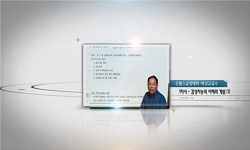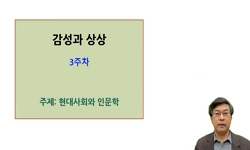Background: Non-specific effect of acupuncture constitutes part of the overall effect generated via clinical encounter beyond needle insertion and stimulation. It is unclear how responders and non-responders of acupuncture experience non-specific effe...
http://chineseinput.net/에서 pinyin(병음)방식으로 중국어를 변환할 수 있습니다.
변환된 중국어를 복사하여 사용하시면 됩니다.
- 中文 을 입력하시려면 zhongwen을 입력하시고 space를누르시면됩니다.
- 北京 을 입력하시려면 beijing을 입력하시고 space를 누르시면 됩니다.



Patients’ perceptions on non‐specific effects of acupuncture: Qualitative comparison between responders and non‐responders
한글로보기https://www.riss.kr/link?id=A108058750
-
저자
Ho Robin S.T. (The Chinese University of Hong Kong) ; Ho Fai Fai (The Chinese University of Hong Kong) ; Adams Jon (University Technology Sydney) ; Cramer Holger (University of Duisburg-Essen) ; Leung Brenda (University of Lethbridge) ; Ward Lesley (Northumbria University) ; Zhang Yan (Texas Christian University) ; Chung Vincent C.H. (The Chinese University of Hong Kong)
- 발행기관
- 학술지명
- 권호사항
-
발행연도
2022
-
작성언어
English
- 주제어
-
등재정보
KCI등재,SCOPUS,SCIE
-
자료형태
학술저널
-
수록면
1-11(11쪽)
-
KCI 피인용횟수
0
- DOI식별코드
- 제공처
-
0
상세조회 -
0
다운로드
부가정보
다국어 초록 (Multilingual Abstract)
Background: Non-specific effect of acupuncture constitutes part of the overall effect generated via clinical encounter beyond needle insertion and stimulation. It is unclear how responders and non-responders of acupuncture experience non-specific effects differently. We aimed to compare their experiences in a nested qualitative study embedded in an acupuncture randomized trial on functional dyspepsia.
Methods: Purposive sampling was used to capture experience of responders (n=15) and non-responders (n=15) to acupuncture via individual in-depth interviews. Design and analysis followed a framework analysis approach, with reference to an existing model on acupuncture non-specific effects. Themes emerging outside of this model were purposefully explored.
Results: Responders had a more trusting relationship with acupuncturist in response to their expression of empathy. In turn they were more actively engaged in lifestyle modifications and dietary advice offered by acupuncturists. Non-responders were not satisfied with the level of reassurance regarding acupuncture safety. They were also expecting more peer support from fellow participants, regarded that as an empowerment process for initiating and sustaining lifestyle changes.
Conclusions: Our results highlighted key differences in acupuncture non-specific effect components experienced by responders and non-responders. Positive non-specific effects contributing to overall benefits could be enhanced by emphasizing on empathy expression from acupuncturists, trust-building, offering appropriate explanations on safety, and organizing patient support groups. Further research on the relative importance of each component is warranted.
다국어 초록 (Multilingual Abstract)
Background: Non-specific effect of acupuncture constitutes part of the overall effect generated via clinical encounter beyond needle insertion and stimulation. It is unclear how responders and non-responders of acupuncture experience non-specific effe...
Background: Non-specific effect of acupuncture constitutes part of the overall effect generated via clinical encounter beyond needle insertion and stimulation. It is unclear how responders and non-responders of acupuncture experience non-specific effects differently. We aimed to compare their experiences in a nested qualitative study embedded in an acupuncture randomized trial on functional dyspepsia.
Methods: Purposive sampling was used to capture experience of responders (n=15) and non-responders (n=15) to acupuncture via individual in-depth interviews. Design and analysis followed a framework analysis approach, with reference to an existing model on acupuncture non-specific effects. Themes emerging outside of this model were purposefully explored.
Results: Responders had a more trusting relationship with acupuncturist in response to their expression of empathy. In turn they were more actively engaged in lifestyle modifications and dietary advice offered by acupuncturists. Non-responders were not satisfied with the level of reassurance regarding acupuncture safety. They were also expecting more peer support from fellow participants, regarded that as an empowerment process for initiating and sustaining lifestyle changes.
Conclusions: Our results highlighted key differences in acupuncture non-specific effect components experienced by responders and non-responders. Positive non-specific effects contributing to overall benefits could be enhanced by emphasizing on empathy expression from acupuncturists, trust-building, offering appropriate explanations on safety, and organizing patient support groups. Further research on the relative importance of each component is warranted.
참고문헌 (Reference)
1 Asprey A, "‘all in the Same Boat— : A Qualitative Study of Patients’ Attitudes and Experiences in Group Acupuncture Clinics" 30 (30): 163-169, 2012
2 Vickers AJ, "Why use placebos in clinical trials? A narrative review of the methodological literature" 53 (53): 157-161, 2000
3 Hibbard JH, "What the evidence shows about patient activation : better health outcomes and care experiences; fewer data on costs" 32 (32): 207-214, 2013
4 Francis JJ, "What is an adequate sample size? Operationalising data saturation for theory-based interview studies" 25 (25): 1229-1245, 2010
5 Chung VC, "Views on traditional C hinese medicine amongst C hinese population : a systematic review of qualitative and quantitative studies" 17 (17): 622-636, 2014
6 Gale NK, "Using the framework method for the analysis of qualitative data in multi-disciplinary health research" 13 (13): 1-8, 2013
7 Jiang SM, "Unhealthy dietary behavior in refractory functional dyspepsia : A multicenter prospective investigation in C hina" 15 (15): 654-659, 2014
8 Kaptchuk TJ, "The placebo effect in alternative medicine: can the performance of a healing ritual have clinical significance?" 136 (136): 817-825, 2002
9 Grünbaum A, "The placebo concept in medicine and psychiatry1" 16 (16): 19-38, 1986
10 Grünbaum A, "The placebo concept in medicine and psychiatry1" 16 (16): 19-38, 1986
1 Asprey A, "‘all in the Same Boat— : A Qualitative Study of Patients’ Attitudes and Experiences in Group Acupuncture Clinics" 30 (30): 163-169, 2012
2 Vickers AJ, "Why use placebos in clinical trials? A narrative review of the methodological literature" 53 (53): 157-161, 2000
3 Hibbard JH, "What the evidence shows about patient activation : better health outcomes and care experiences; fewer data on costs" 32 (32): 207-214, 2013
4 Francis JJ, "What is an adequate sample size? Operationalising data saturation for theory-based interview studies" 25 (25): 1229-1245, 2010
5 Chung VC, "Views on traditional C hinese medicine amongst C hinese population : a systematic review of qualitative and quantitative studies" 17 (17): 622-636, 2014
6 Gale NK, "Using the framework method for the analysis of qualitative data in multi-disciplinary health research" 13 (13): 1-8, 2013
7 Jiang SM, "Unhealthy dietary behavior in refractory functional dyspepsia : A multicenter prospective investigation in C hina" 15 (15): 654-659, 2014
8 Kaptchuk TJ, "The placebo effect in alternative medicine: can the performance of a healing ritual have clinical significance?" 136 (136): 817-825, 2002
9 Grünbaum A, "The placebo concept in medicine and psychiatry1" 16 (16): 19-38, 1986
10 Grünbaum A, "The placebo concept in medicine and psychiatry1" 16 (16): 19-38, 1986
11 Chavarria V, "The placebo and nocebo phenomena : their clinical management and impact on treatment outcomes" 39 (39): 477-486, 2017
12 Data-Franco J, "The nocebo effect : a clinicians guide" 47 (47): 617-623, 2013
13 Yang JW, "The holistic effects of acupuncture treatment" 2014 : 2014
14 Hopton A, "The acceptability of acupuncture for low back pain: a qualitative study of patient’s experiences nested within a randomised controlled trial" 8 (8): e56806-, 2013
15 Birch S, "Testing the clinical specificity of needle sites in controlled clinical trials of acupuncture" 29 : 274-294, 1995
16 Birch S, "Testing the claims of traditionally based acupuncture" 5 (5): 147-151, 1997
17 Pach D, "Standardized versus individualized acupuncture for chronic low back pain: a randomized controlled trial" 2013 : 2013
18 Vase L, "Specifying the nonspecific components of acupuncture analgesia" 154 (154): 1659-1667, 2013
19 Denzen N, "Sociological methods: A sourcebook" 1978
20 Bishop FL, "Scientific tools, fake treatments, or triggers for psychological healing : how clinical trial participants conceptualise placebos" 74 (74): 767-774, 2012
21 Chan MW, "Safety of acupuncture : overview of systematic reviews" 7 (7): 1-11, 2017
22 Chinese Medicine Council of Hong Kong, "Regulation of Chinese Medicines Practitioners"
23 Cutcliffe JR, "Reconsidering reflexivity : introducing the case for intellectual entrepreneurship" 13 (13): 136-148, 2003
24 Ritchie J, "Qualitative research practice: A guide for social science students and researchers" sage 2013
25 Pope C, "Qualitative research in health care : Analysing qualitative data" 320 (320): 114-, 2000
26 Spiegel B, "Psychometric evaluation of patient-reported outcomes in irritable bowel syndrome randomized controlled trials : a Rome Foundation report" 137 (137): 1944-1953, 2009
27 Centre for Health Protection, Department of Health, "Proposed Guidelines on Infection Control related to Acupuncture"
28 Camilleri M, "Primary endpoints for irritable bowel syndrome trials : a review of performance of endpoints" 5 (5): 534-540, 2007
29 Kaptchuk TJ, "Placebo effects in medicine" 373 (373): 8-9, 2015
30 Elsenbruch S, "Placebo effects and their determinants in gastrointestinal disorders" 12 (12): 472-, 2015
31 Benedetti F, "Placebo and the new physiology of the doctor-patient relationship" 93 (93): 1207-1246, 2013
32 Liu T, "Placebo analgesia, acupuncture and sham surgery" 2011 : 65-, 2010
33 Pearson SD, "Patients’ trust in physicians : many theories, few measures, and little data" 15 (15): 509-513, 2000
34 Barr K, "Participation in a randomised controlled trial of acupuncture as an adjunct to in vitro fertilisation : the views of study patients and acupuncturists" 8 (8): 48-54, 2016
35 Bradbury K, "Non-specific mechanisms in orthodox and CAM management of low back pain (MOCAM): theoretical framework and protocol for a prospective cohort study" 6 (6): e012209-, 2016
36 Ho RS, "Non-specific effects of acupuncture and sham acupuncture in clinical trials from the patient’s perspective: a systematic review of qualitative evidence" 2020
37 Schedlowski M, "Neuro-bio-behavioral mechanisms of placebo and nocebo responses : implications for clinical trials and clinical practice" 67 (67): 697-730, 2015
38 Immordino-Yang MH, "Neural correlates of admiration and compassion" 106 (106): 8021-8026, 2009
39 Armour M, "More than needles: the importance of explanations and self-care advice in treating primary dysmenorrhea with acupuncture" 2016 : 2016
40 Shuldiner SR, "Methodological challenges in mapping chinese medicine syndrome with conventional diagnosis : implications for multi-centre trials in integrative medicine" 7 (7): 358-364, 2015
41 Manheimer E, "Meta-analysis : acupuncture for osteoarthritis of the knee" 146 (146): 868-877, 2007
42 Ahmed DAA, "Issues of gender, reflexivity and positionality in the field of disability : researching visual impairment in an Arab society" 10 (10): 467-484, 2011
43 Chung VC, "Incorporating traditional Chinese medicine syndrome differentiation in randomized trials : methodological issues" 8 (8): 898-904, 2016
44 Khorsan R, "How to assess the external validity and model validity of therapeutic trials : a conceptual approach to systematic review methodology" 2014 : 694804-, 2014
45 Linde K, "How large are the nonspecific effects of acupuncture? A meta-analysis of randomized controlled trials" 8 (8): 1-14, 2010
46 Street, "How does communication heal? Pathways linking clinician–patient communication to health outcomes" 74 (74): 295-301, 2009
47 Shapiro AK, "Handbook of Psychotherapy and Behavior change. The placebo effect in medical and psychological therapies" 1978
48 Haake M, "German acupuncture trials(GERAC)for chronic low back pain : randomized, multicenter, blinded, parallel–group trial with 3 groups" 167 (167): 1892-1898, 2007
49 Enck P, "Functional dyspepsia" 3 (3): 1-20, 2017
50 Talley NJ, "Functional Dyspepsia Treatment Trial(FDTT) : a double-blind, randomized, placebo-controlled trial of antidepressants in functional dyspepsia, evaluating symptoms, psychopathology, pathophysiology and pharmacogenetics" 33 (33): 523-533, 2012
51 Parkinson S, "Framework analysis : a worked example of a study exploring young people’s experiences of depression" 13 (13): 109-129, 2016
52 Shi GX, "Factors contributing to therapeutic effects evaluated in acupuncture clinical trials" 13 (13): 1-5, 2012
53 Leonard TF Ho ; Vincent C.H. Chung ; Charlene H.L. Wong ; Irene XY Wu ; Kun Chan Lan ; Darong Wu ; Jerry WF Yeung ; Nevin L Zhang ; Ting Hung Leung ; Justin C Y Wu, "Evaluating traditional Chinese medicine diagnostic instruments for functional dyspepsia: systematic review on measurement properties" 한국한의학연구원 10 (10): 1-10, 2021
54 Guillemin M, "Ethics, reflexivity, and"ethically important moments"in research" 10 (10): 261-280, 2004
55 Patton MQ, "Enhancing the quality and credibility of qualitative analysis" 34 (34): 1189-, 1999
56 Bradbury-Jones C, "Enhancing rigour in qualitative health research : exploring subjectivity through Peshkin’s I’s" 59 (59): 290-298, 2007
57 Patton, M. Q., "Encyclopedia of statistics in behavioral science" 2005
58 Chung VC, "Electroacupuncture plus standard of care for managing refractory functional dyspepsia: protocol of a pragmatic trial with economic evaluation" 8 (8): 2018
59 Chung VC, "Electroacupuncture plus on-demand gastrocaine for refractory functional dyspepsia : Pragmatic randomized trial" 34 (34): 2077-2085, 2019
60 Yuan J, "Effectiveness of acupuncture for low back pain: a systematic review" 33 (33): E887-E900, 2008
61 Witt CM, "Effectiveness guidance document(EGD)for Chinese medicine trials : a consensus document" 15 (15): 1-11, 2014
62 Petrie KJ, "Effect of providing information about normal test results on patients’ reassurance : randomised controlled trial" 334 (334): 352-, 2007
63 Younger J, "Development of the Stanford Expectations of Treatment Scale(SETS) : a tool for measuring patient outcome expectancy in clinical trials" 9 (9): 767-776, 2012
64 Cresswell JW, "Designing and conducting mixed method research" Sage 201-, 2011
65 Irvine EJ, "Design of treatment trials for functional gastrointestinal disorders" 130 (130): 1538-1551, 2006
66 Kaptchuk TJ, "Components of placebo effect : randomised controlled trial in patients with irritable bowel syndrome" 336 (336): 999-1003, 2008
67 Hannibal KE, "Chronic stress, cortisol dysfunction, and pain : a psychoneuroendocrine rationale for stress management in pain rehabilitation" 94 (94): 1816-1825, 2014
68 Kaptchuk TJ, "Chinese Medicine: The Web That Has No Weaver" Random House 2000
69 Paterson C, "Characteristic and incidental(placebo)effects in complex interventions such as acupuncture" 330 (330): 1202-1205, 2005
70 Xiang Y, "Appropriateness of sham or placebo acupuncture for randomized controlled trials of acupuncture for nonspecific low back pain : a systematic review and meta-analysis" 11 : 83-, 2018
71 Chung VC, "Age, chronic non-communicable disease and choice of traditional Chinese and western medicine outpatient services in a Chinese population" 9 (9): 1-8, 2009
72 Madsen MV, "Acupuncture treatment for pain:systematic review of randomised clinical trials with acupuncture, placebo acupuncture, and no acupuncture groups" 338 : 2009
73 Lao L, "Acupuncture techniques and devices" 2 (2): 23-25, 1996
74 MacPherson H, "Acupuncture research:strategies for establishing an evidence base" Elsevier Health Sciences 2007
75 Linde, K., "Acupuncture for tension-type headache" (1) : CD007587-, 2009
76 Linde K, "Acupuncture for migraine prophylaxis" (1) : CD001218-, 2009
77 Vickers AJ, "Acupuncture for chronic pain : update of an individual patient data meta-analysis" 19 (19): 455-474, 2018
78 Scharf HP, "Acupuncture and knee osteoarthritis : a three-armed randomized trial" 145 (145): 12-20, 2006
79 Smith C, "Acupuncture and acupressure and massage health outcomes for patients with anorexia nervosa : findings from a pilot randomized controlled trial and patient interviews" 20 (20): 103-112, 2014
80 Cherkin DC, "A randomized trial comparing acupuncture, simulated acupuncture, and usual care for chronic low back pain" 169 (169): 858-866, 2009
81 Kaptchuk TJ, ""Maybe I made up the whole thing" : placebos and patients’ experiences in a randomized controlled trial" 33 (33): 382-411, 2009
동일학술지(권/호) 다른 논문
-
- 한국한의학연구원
- Im A-Rang
- 2022
- KCI등재,SCOPUS,SCIE
-
Historical perspectives on using sham acupuncture in acupuncture clinical trials
- 한국한의학연구원
- Birch Stephen
- 2022
- KCI등재,SCOPUS,SCIE
-
- 한국한의학연구원
- Li Tian
- 2022
- KCI등재,SCOPUS,SCIE
-
- 한국한의학연구원
- Pan Xiaoming
- 2022
- KCI등재,SCOPUS,SCIE
분석정보
인용정보 인용지수 설명보기
학술지 이력
| 연월일 | 이력구분 | 이력상세 | 등재구분 |
|---|---|---|---|
| 2023 | 평가예정 | 해외DB학술지평가 신청대상 (해외등재 학술지 평가) | |
| 2020-01-01 | 평가 | 등재학술지 유지 (해외등재 학술지 평가) |  |
| 2017-01-01 | 평가 | 등재학술지 선정 (계속평가) |  |
| 2015-07-28 | 학술지명변경 | 한글명 : INTEGRATIVE MEDICINE RESEARCH -> Integrative Medicine Research외국어명 : INTEGRATIVE MEDICINE RESEARCH -> Integrative Medicine Research |  |
| 2015-01-01 | 평가 | 등재후보학술지 선정 (신규평가) |  |
학술지 인용정보
| 기준연도 | WOS-KCI 통합IF(2년) | KCIF(2년) | KCIF(3년) |
|---|---|---|---|
| 2016 | 0.35 | 0.35 | 0.31 |
| KCIF(4년) | KCIF(5년) | 중심성지수(3년) | 즉시성지수 |
| 0.33 | 0 | 0.432 | 0.17 |




 KCI
KCI






